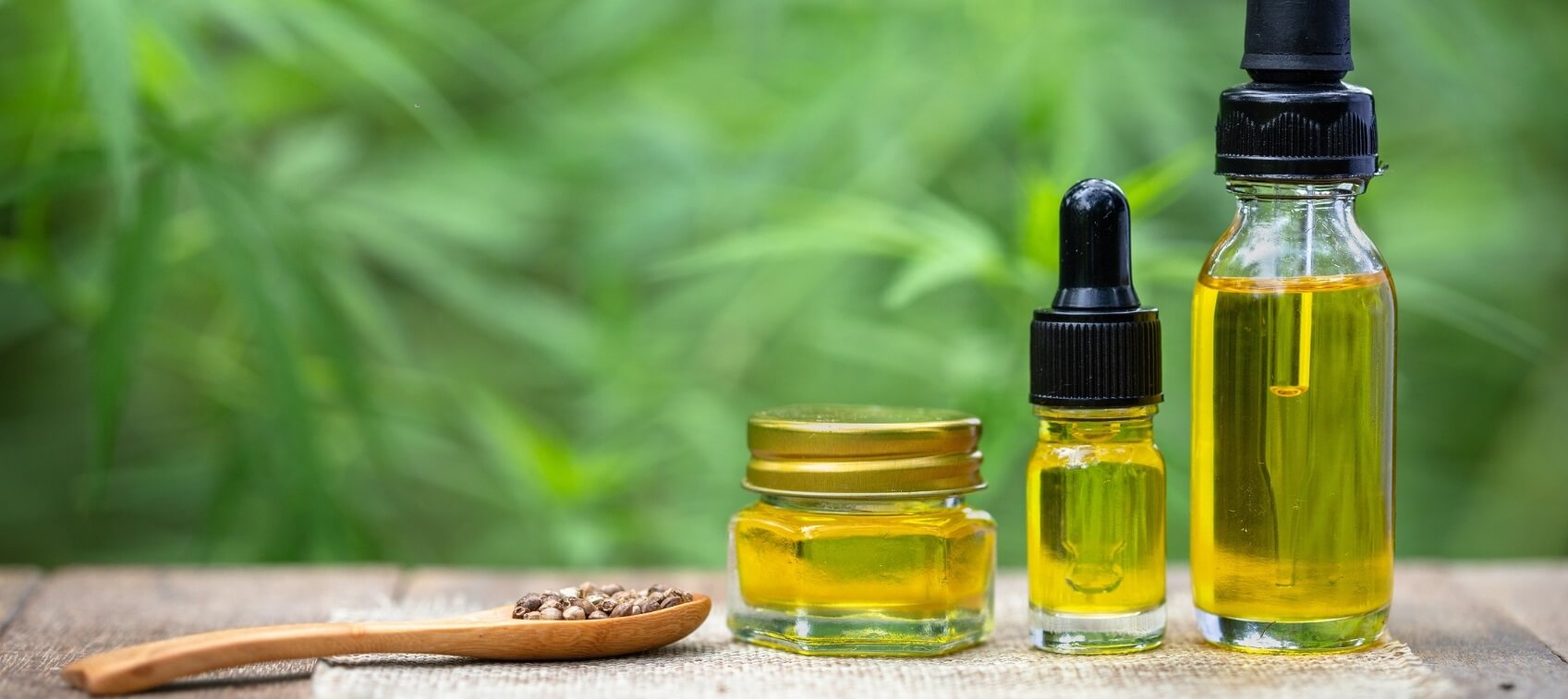
It seems that no matter where you are these days CBD, or cannabidiol, products are on display—practically everywhere—from gas stations to doctors’ offices.
The CBD products industry has exploded over the last 5 years, and companies are claiming CBD effectively treats pain, insomnia, anxiety, depression, headaches, menstrual cramps, and even autoimmune diseases.
Is this a bunch of hype, or does CBD really have therapeutic potential to help with these symptoms and conditions? Based on my clinical experience and research, I think the answer is a combination of both.
What Is CBD & Where Does It Come From?
I like to think of CBD as the “younger sibling” of THC, or tetrahydrocannabinol, the most abundant cannabinoid compound of cannabis (marijuana). THC is a psychoactive compound responsible for the “high” and alteration of your consciousness.
CBD, conversely, is non-psychoactive, which means it will not affect your brain like THC does and will not get you high. This is a good thing because you can take CBD and continue to drive, work, or do anything for that matter, without affecting your consciousness.
Hemp and cannabis plants contain both CBD and THC, with hemp containing higher amounts of CBD than THC. Both plants also contain hundreds of compounds that have therapeutic potential, including CBD and THC derivatives, terpenoids, flavonoids, and even antioxidants.
Choosing a CBD Product
As with other herbal medicines, a formula that has all of the plant’s compounds seems to work better than isolating and using a single compound. This effect is known as the entourage effect, which has been shown to improve the efficacy and strength of a formula.
This is one of the key differentiators between the different types of over-the-counter CBD formulas:
- CBD Isolate: Contains only CBD compounds.
- Broad-Spectrum CBD: Contains many of the plant’s compounds but no THC.
- Full-Spectrum CBD: Contains many of the plant’s compounds including <0.3 mg THC.
The issue with full-spectrum CBD is that you may fail a drug test if you take high enough doses for THC to be detected in a urine sample. Remember, THC is the compound responsible for the “high” that cannabis users experience, so if you want to completely avoid THC then do not take full-spectrum CBD formulas.
Many people believe, however, that full-spectrum CBD works better than CBD isolate or broad-spectrum CBD, due to the entourage effect of these compounds as using the “whole plant” with all the constituents leads to a synergistic effect.
Uses and Benefits of CBD
CBD can be beneficial for:
- Insomnia
- Anxiety
- Pain
- Autoimmune disease
- Immune dysfunction
- Neuroinflammation
Several of my patients have experienced positive benefits from CBD. One patient reported that taking CBD allowed her to reduce her reliance on pain medications, including opioids.
Another patient used CBD to sleep more deeply through the night, and her need for sleeping pills (Ambien) decreased as well. Others have told me they feel calmer and more at peace when taking CBD.
Of course, these are my patients’ self-reported benefits, but the good news is research has backed up the use of CBD to support cases of pain, insomnia, and anxiety, among many conditions. Also, in the research literature, certain manifestations of epilepsy appear to respond very well to higher dose CBD, particularly in the pediatric population.
Potential Side Effects
In human studies, CBD appears to be very safe with few side effects. Yet, as with any medicine or supplement CBD has the potential to cause adverse reactions—particularly at higher doses, or in sensitive populations.
Side effects of CBD can include:
- Diarrhea
- Fatigue
- Mild sedation
- Changes in appetite and weight
CBD also has a few contraindications, since it can inhibit certain cytochrome p450 enzymes, which can affect drug metabolism. For example, if you are taking a statin medication or any other medication metabolized by CYP450 enzymes, you will want to talk to your doctor first before starting CBD.
Recommended Dose of CBD
I wish I could give you an “optimal dose” of CBD that will help you sleep better or reduce pain or anxiety, but it’s not that simple.
CBD doesn’t work for everyone. Plus, the recommended doses vary widely depending on the study you are reading, the quality of the CBD, the delivery system, and other factors. Plus, there seems to be a bell curve effect with CBD, with a different optimal dose for each person.
Yet, as a rough guide here is what I consider a typical dose of CBD per day (most patients I see are taking low doses):
- Low – 10-20 mg
- Moderate – 20-50 mg
- High – 50+ mg
Here’s the Bottom Line
Overall, I must say that I am impressed with the efficacy of CBD and low potential for side effects.
According to the World Health Organization, “CBD exhibits no effects indicative of any abuse or dependence potential” and “CBD is generally well tolerated with a good safety profile.” If you are suffering from anxiety, sleep issues, or pain, CBD is a supplement worth trying to see if you receive any benefit.
I would, however, like to express some caution around buying CBD products. This is a rapidly growing industry with little oversight. There are many products on the market that may be poor quality (or contain no CBD at all!) and could be ladened with pesticides and mold.
I do recommend sourcing a high-quality CBD product that offers independent third-party testing with lab analyses available to view. I also recommend looking for an extraction method that does not use chemical solvents and choose organic when possible.
Lastly, the legality of CBD is not well defined. It may not be legal depending on where you live even though it’s wildly available on the internet.
Resources:
- https://www.who.int/medicines/access/controlled-substances/CannabidiolCriticalReview.pdf
- https://www.uclahealth.org/cannabis/cannabis-and-its-compounds
- https://www.health.harvard.edu/blog/cannabidiol-cbd-what-we-know-and-what-we-dont-2018082414476
- https://www.ncbi.nlm.nih.gov/pmc/articles/PMC5569602/
- https://www.ncbi.nlm.nih.gov/pubmed/31447137
- https://www.ncbi.nlm.nih.gov/pmc/articles/PMC6326553/


